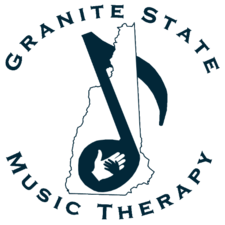5 Ways to Build a Relationship Through Music
There are many ways music can bring people together, whether it is by simply listening to the same song simultaneously or by singing a song together. Here is a list of five ways a relationship can be enhanced through music.
1 - Moving to Music Together
There is research that supports moving with someone synchronously strengthens the relationship between two people or a group of people. Human beings instinctively want to feel like part of a group, like they are part of something bigger than themselves. Some of it goes back to our ancestors and how groups of people looked out for each other and protected one another. When you exercise, it releases endorphins. However, when you exercise in time with someone else, it has an even stronger effect. When we add music, we so effortlessly fall in line with the beat it makes it difficult to not move at the same time as everyone else hearing the same song. There is research that supports an increase in feelings of empathy for someone you move with as well.
For more information, visit this article on Scientific American:
Click Here
2 - Listening to Music with a Loved One
Music has been found to activate many areas of the brain, including the regions that help us understand what others are thinking and feeling. Research has found that people often equate what kind of music you like with your values and who you are as a person. There is a reason children’s songs have been passed down from generation to generation, and crowds of people listen to the same national anthem before a sporting event. It makes a person feel like they belong to a community, and it strengthens the relationships between those people.
Referenced article from Berkeley:
Click Here
3 - Playing Music with Someone
What separates playing music with someone versus sharing another activity with them is the importance of “shared rhythms.” It’s the ability to not only share the music together in the moment, but to also be able to guess what the other person will do next. Music provides a predictive structure that aids synchrony. Research has found that playing music together releases oxytocin into the brain, which promotes trust, empathy, and the ability to infer the mental state of others.
Referenced article from NCBI:
Click Here
4 - Writing Music Together
Writing music together takes a lot of skills, not all of them relating to music. To write a song with someone, you need strong communication skills. If you don’t actively listen to the other person’s ideas, it won’t be an equal partnership and you may end up creating the entire piece on your own. It requires problem solving skills. Maybe the other person has an idea that you like, but you need to find a way to make it fit better.
It’s a wonderful way to develop emotional intelligence. You must be self-aware and able to regulate your emotions. If you get constructive feedback from the other person, you want to be able to learn from it and not take it personally. You also want to be able to read the other person’s emotions. If they look uncomfortable with what you are saying, you need the ability to address it and change how you are engaging with the material. Writing a song with someone (whether it’s the next best hit or not!) could really build up communication and social-emotional skills between two people.
Referenced article from the Very Well Mind:
Click Here
5 - Singing with Another Person
Singing with someone is a great way to strengthen a relationship. Research has shown that the bigger the group of people singing is, the closer they become. This is pretty amazing considering there are more people, so you may initially think it would be more difficult for everyone to connect.
For more information, visit this article at Science Direct:
Click Here
A Takeaway
Music connects us, there is no way around it. Music has been a part of cultures since the beginning of civilization and will continue to be around for years to come. So no matter the relationship, big or small, significant or fleeting, music can most definitely impact it in a positive way.
Author: Jenni Chute, MA, MT-BC
Editor: Sonya Imperio, MT-BC
Stay up-to-date with our latest resources!
Sign up for our newsletter!
We value your privacy.








